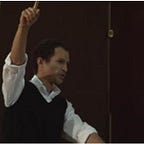Press blackout on Katutura meeting
It should come as no surprise that the highly anticipated debate at the Katutura Community Hall on 13 November was completely ignored by the daily press. But why the apparent news blackout?
At the Katutura meeting a large number of people resolved to set aside their political differences and work towards a collective solution to the housing crisis facing the urban and rural poor, in particular the youth, because for many people it is, without exaggerating, a life-and-death issue.
The message of cross-party unity and solidarity on the issue of housing and land, that was repeated by speaker after speaker, runs counter the whole narrative of the mainstream press, which maintains the fiction that there are significant differences between the old parties, when clearly one can hardly fit a cigarette paper between them.
That meeting was noteworthy, if only because people from so many different walks of life resolved to set aside racial, party-political and ethnic differences to work for a broader legal solution to the shortage of housing and affordable land; a solution to the benefit of all citizens.
The atmosphere of working class solidarity was demonstrated by the way all speakers voluntarily removed their party colours in order to show unity with the cause.
Above all the press failed to report that the Katutura meeting backed a common demand for a Constitutional Amendment to address the need for residential land.
The meeting further agreed to campaign for a new law to ensure one residential erf to each citizen as a basic Constitutional Right. If that is not news, then I don’t know what is.
I suspect the reason the daily papers ignored the extraordinary resolution of that community meeting is that the implications of a real working class movement, rooted in the struggles and experience of the oppressed people, united across party-political barriers, as well as across age and ethnic lines, is something too frightening for the upper classes to contemplate.
The silence of the press about the important resolution to amend the Constitution, coming from the grassroots, is actually about controlling the terms of the debate (what the intellectuals call the ‘discourse’) by suppressing certain voices, by not mentioning alternatives.
Their silence on the issue is about hegemony, it’s about pretending that ‘what we told you is all there is’. Fortunately the internet enables us to go beyond the limits set by the traditional media, to still get the facts out there.
The fact is that the solidarity and unity of the working class have been decimated over the past two decades by a leadership more interested in class collaboration and self-enrichment, by repeated betrayals, by subordinating the interest of workers to the interests of the party, by abandonment of the needs of the youth, by abandonment of the call to struggle.
Through its partisan coverage over the years the Namibian press also played a leading role in producing the current status quo by suppressing views and social movements that do not fit into the mainstream discourse — make no mistake — and have now taken to uncritically cheer-leading the minions of Mugabe. Take a moment to contemplate the implications.
The attacks on the poor nevertheless continue unabated, even as creeping inflation robs the bread from the mouths of those on the breadline, depriving many more of a safe and decent home.
Namibia is now the second most unequal country in the world, after South Africa. Fewer than one in 10 can afford a low-income house in a country where the majority earn less than N$2000, where shack-dwellers burn to death every week. For too many people the situation has become unbearable.
It is for this very urgent and tragic reason that the DRC Residents Group is calling for a Day of Action at the opening of Parliament in 2015 in the hope that we can bring about a meaningful and lawful change to ensure the rights of all current and future generations to a piece of land we can call home.
